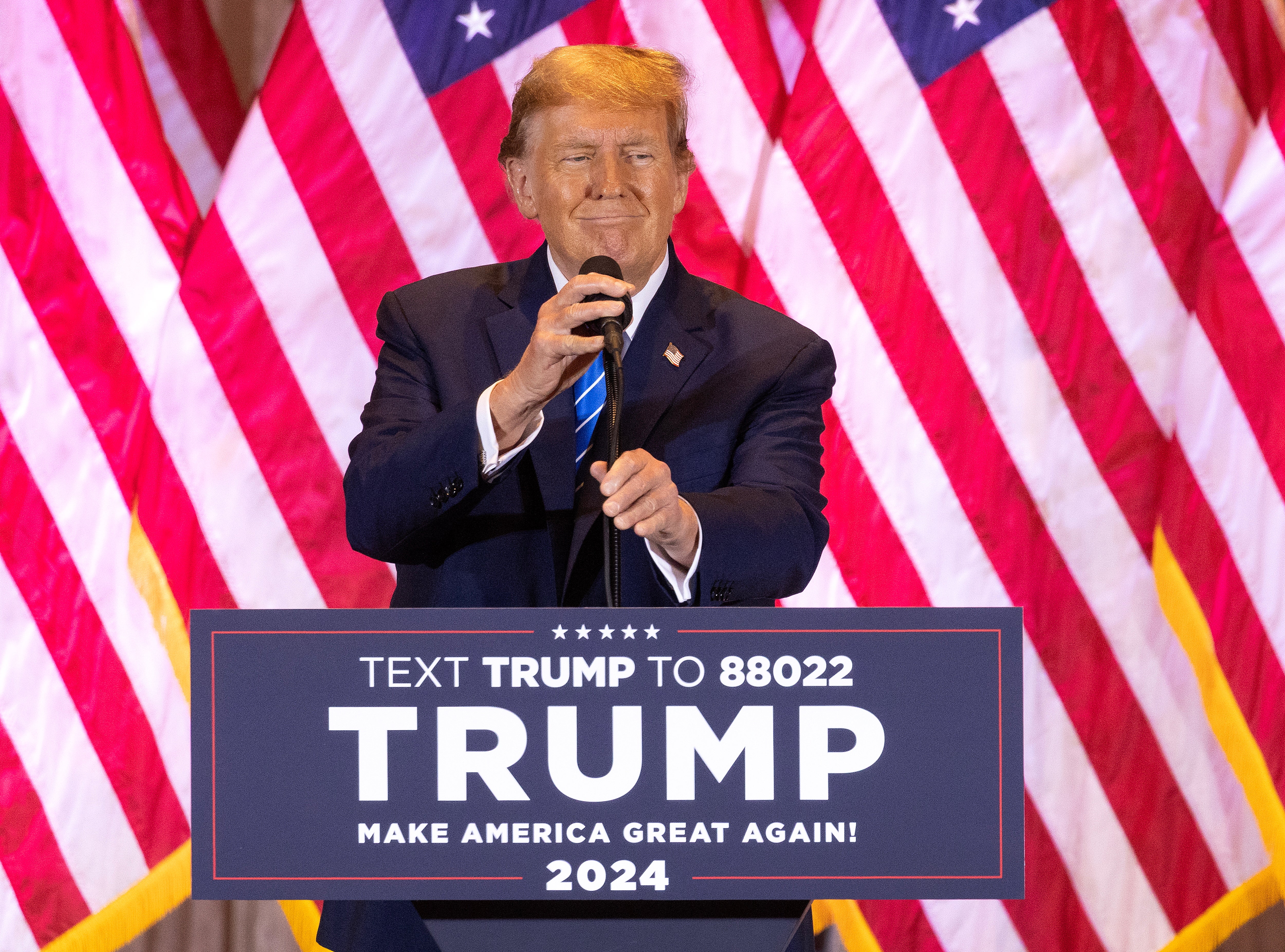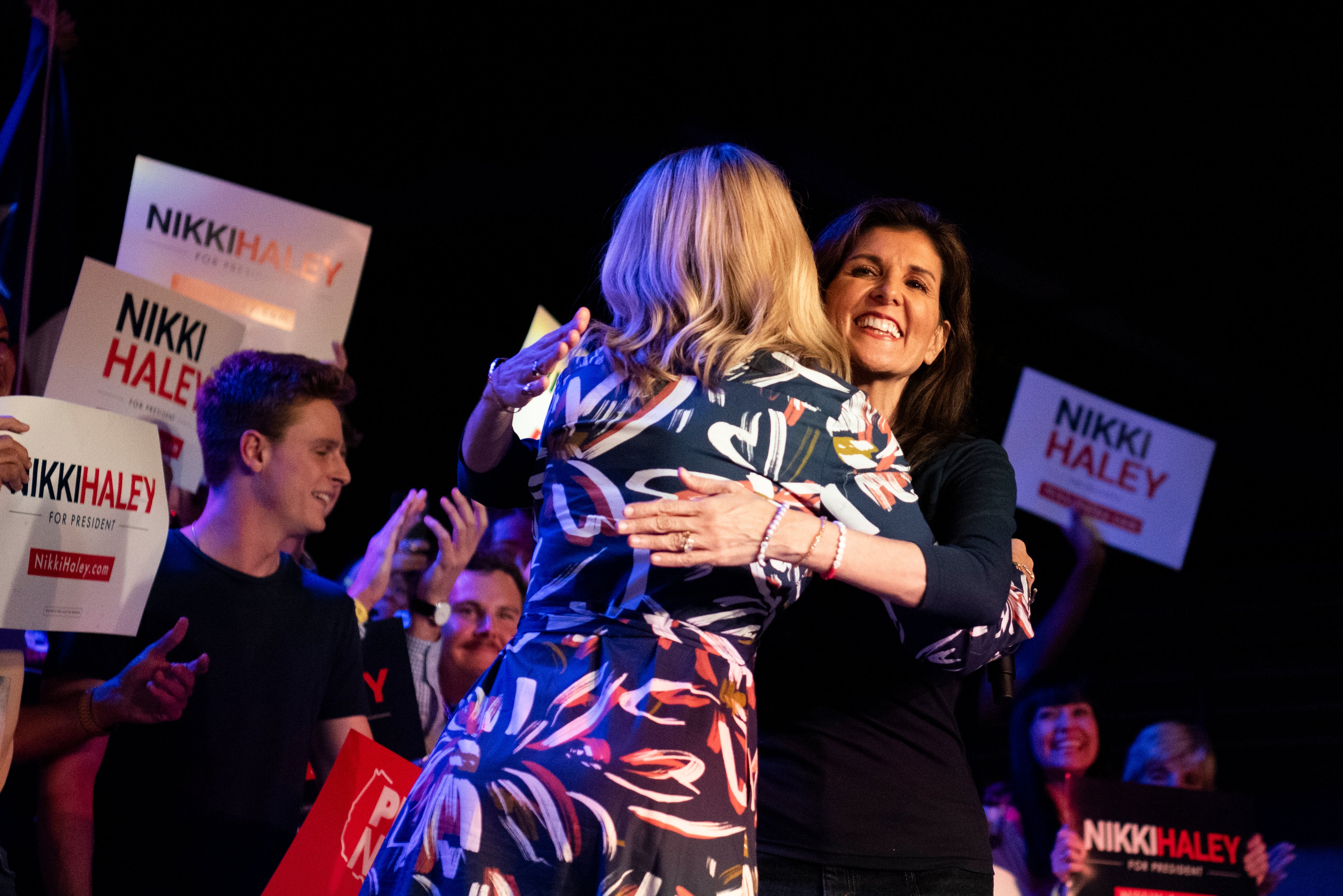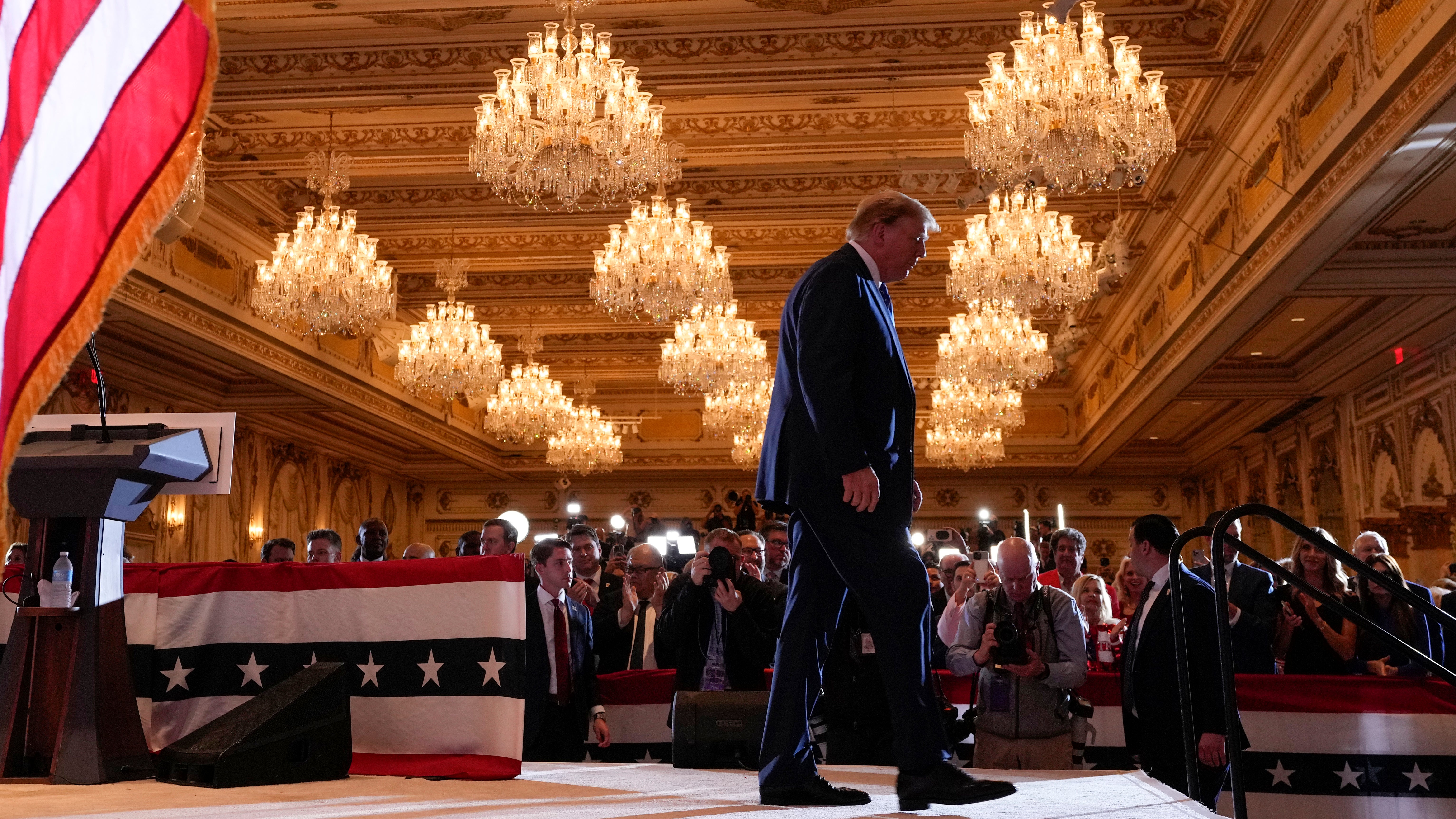Trump’s ‘conclusive’ Super Tuesday win hides an awkward truth
Jon Sopel joins a thousand jubilant Republicans in Florida as Donald Trump declares himself invincible in the race for the party’s presidential nomination. But his rival Nikki Haley has a couple of options – one thermonuclear – that could yet derail him


It was Trump’s night. And a very Trumpian night. The “watch party” was in the ballroom of Mar-a-Lago, his very particular homage to the Palace of Mirrors at Versailles – all gaudy chandeliers, ornate plasterwork and gold chairs. It is gilt without the guilt.
His supporters had gathered, and all of them turned up in their best bib and tucker. It was less a political convention than a chance to dress up and show off.
When I was there eight years ago – before Trump had ascended to the presidency – it was a very different feel. There were only a few dozen members of the exclusive members club at the ridiculously manicured Palm Beach location on billionaires’ boulevard. They were a motley bunch, a sort of showcase of what cosmetic surgery can – and very strikingly can’t – deliver for people of advancing years. It was boob-job, butt-lift, botox, dyed-hair heaven. And then there was us: the scruffy journalists in the rows behind, trying to catch the president’s eye to ask a killer question.
Last night, the hacks were confined to the very back of the room with, this time, probably around a thousand supporters in front. Waiters and waitresses sashayed around offering pizza slices and free soft drinks. There was no booze, which probably made a long evening feel even longer.
Sixteen states were voting – the biggest night of the primary process there is. And although mathematically there weren’t enough delegate votes for Trump to secure definitively the nomination over Nikki Haley, there were enough to make it impossible for anyone else to win.
In glaring contrast to this victory party orchestrated to show Trump’s invincibility, Haley had nothing planned: there was no watch party, no coming together of her supporters. If Trump was projecting supreme confidence, she was showing vulnerability.

The one state where it was thought she might be competitive last night was Virginia, where the most populous part of the state borders Washington DC. But it was the first state to be called for Trump by the US networks. If I had been in London, that would have been the moment I would have chosen to go to bed. This was not going to be a night of upsets.
And so the states continued to fall to the former president: North Carolina, Oklahoma, Tennessee. One after another. There were interesting little wrinkles though in the polling data. I offer this without comment, but in the counties with the highest proportion of college-educated voters, Haley smashed it; in the places with the lowest educational attainment, Trump prevailed. Finally, not long before 11pm, Vermont was declared for Haley – but that was the only bright light of a long night.
When eventually Trump appeared at the rostrum in the ballroom, he proclaimed that there had never been a set of results so conclusive. And he spoke a great deal about unity and the need for the nation to come together – and then rambled and meandered around various unconnected subjects, as is his wont. From tar sands to Afghanistan, from Covid to army goggles, on and on it went. But most strikingly it was the dog that didn’t bite: he didn’t mention Nikki Haley, either directly or indirectly.
Over on Fox News, their commentariat had no such restraint: if Haley wanted to avoid becoming horribly squished roadkill, flattened by the Trump bandwagon, she needed to wave a white flag now. Take the next plane to the pink palace of Mar-a-Lago, bend the knee, kiss the ring and offer to do whatever it takes to get Donald Trump elected as president.
That is option one for Haley. But there are two other scenarios.
The second is that she ends her campaign, accepts that Trump is the nominee – but doesn’t endorse him. In interviews in the past few days, it has been noticeable how reluctant she has been to make that commitment. If she didn’t, it would bring a torrent of abuse. But if Trump doesn’t beat Biden in November, her refusal to back him might look smart.

Then there’s the thermonuclear option. And that is to run as a third-party candidate. All of the polling evidence shows that the American people think that both Trump and Biden are too old. To describe the choice as unappetising is to put it at its mildest. The history of third-party candidates in US elections is that they are spoilers – the Ralph Naders, the Ross Perots, the Jill Steins were never in a position to win; the best they could do is stop someone else from winning.
But given the clear weaknesses of both Joe Biden and Donald Trump, could 2024 be different? Probably not. But it’s not ridiculous.
My money is on Haley not doing that. She’s 52 years old. She will probably calculate that it’s best not to torch all relations with the Republican Party, and so she will reluctantly get behind Trump – and be a formidable candidate in 2028. That would be the conventional wisdom path. But she’s playing her cards close.
Nevertheless, the fact that one can even make this argument underscores what might not be immediately evident from Super Tuesday: it is that Trump’s position is not quite as strong as he would like to project it to be. Haley has been picking up significant support – between 30 and 45 per cent of Republican primary voters in a number of states. And will all those people who’ve voted for the former UN ambassador automatically go back to Trump in the November general election?
At Mar-a-Lago, it’s been a good night for Trump; no, a really good night. But a super Tuesday? Not quite.
Jon Sopel is the former BBC North America editor and now presents Global’s ‘The News Agents’ podcast
Join our commenting forum
Join thought-provoking conversations, follow other Independent readers and see their replies
Comments
Bookmark popover
Removed from bookmarks